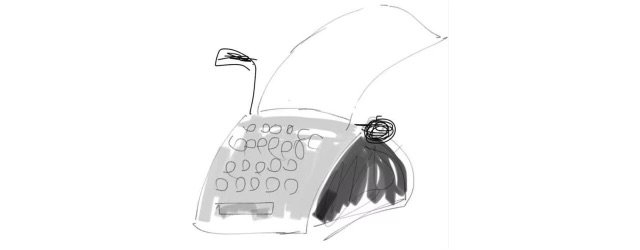Another
Won the IP Picks Prize for an unpublished manuscript
“The novel is filmic in its attention to detail and almost unremittingly bleak. However, despite the grotty realism, the narrative is interspersed with lyrical magical realist moments. At times a narrator, in utero, contemplates the cosmic wonder of life in lines that reveal Deane’s double life as a poet: ‘I see this day dying ... and find myself in love with [it] for no good reason.’ The unborn narrator also comments on Toby’s blindness to the future and the past, which includes, as well as his own family’s tragedies, crimes against Aborigines. Sometimes Toby does see the shadows of history that rise – like the undead, like sinister unreason – with the night. These interludes are reminiscent of those in Tim Winton’s Cloudstreet, which provides an interesting counterpoint. Deane’s novel represents a similar workingclass demographic, but rejects Winton’s heady romanticisation”
“This striking debut novel by poet and Steve Bracks’ speechwriter Deane exposes a mythical outer-suburban housing estate in somewhere (anywhere), Australia. Teenage protagonist Toby is a pacifist stranded in a sea of violence. His scars, arising from a mysterious accident, fascinate young Suzie. Self-harming Suzie pushes Toby into deeper and deeper water, until even murder seems just a precursor to something worse. Side characters are finely drawn, as is the concept of multi-generational domestic abuse and overheated, under-resourced locale. At times, a theme of ghostly indigenous children distracts you from the main narrative, but this winner of the IP Fiction Prize represents a fresh, compelling voice in contemporary Australian fiction. Not for the squemish”
“A cleverly-structured piece of dark realist literature, portraying the harsh realities of everyday life in a most visual manner. Deane succeeds in creating disjointed slices of reality that come together to both shock and haunt his readers”
“Another is harsh, a gruelling depiction of family breakdown, petty crime, adolescent discontent and inner and outer scars”
“Joel Deane’s first novel has just been published and is, in a word, compelling”
“An unremitingly bleak story ... It is a part of Australian life that our literature hasn’t much interest in coming to terms with and Deane seems to write about it from the inside and with real compassion for his characters’ struggles”
“Perhaps there is no place more barren or bleak than a new subdivision on the edge of suburbia where no one but the poor would want to live. Toby’s girlfriend Suzie is pregnant but doesn’t know it yet. The tiny foetus is the novel’s ocassional first-person voice, with a connectedness to the ghosts of the past and future. Beneath the concrete and tar were once trees, animals and a poisoned swimming-hole where Aboriginal children floated dead into the arms of their wailing parents. The unborn child is the sole flicker of hope in Another, with a will to live and love of its life-to-be. Suzie, on the other hand likes the idea of suicide, but it mainly content to cut herself with a razor, carving away all the ugly memories and forming careful patterns. She likes scars, and she like Toby for his scarred back, badly burned as a child. Toby does a bit of stealing and likes the sensation of striking an unconscious man’s head repeatedly with a metal bar, for the unfamiliar feeling of power; an expression of the helplessness in his tormented past. Another is a brutal novel, full of violence and hatred. Yet everything about it is true and clearly recognisable, from daily news reports if not from one’s own life. The characters are on a descending spiral and Joel Deane seems to know them better than they will ever know themselves. People like Toby and Suzie might never pick up a book to read, and they don’t want to know or care what others think, but the rest of us need to know what makes them that way. Another is a book for young adults who love words put in the right order, often poetic, telling a shocking story with a profound clarity of voice and vision”
“Joel Deane has written a lyrical, powerful novel that is, in equal parts, utterly political, and rooted in that realm of human emotion which is above politics. It is a call to action for the atrocious world we’ve given our youth, and at the same time, a celebration of the beauty of humanity. It is easy and fast to read, and the kind of deep, intense experience which will stay with the reader for a long time”
“This is the rubble of suburbia, an Australia we are too smug to acknowledge, too scared to enter. Joel Deane has written a dark and moving novel about families on the margins”

